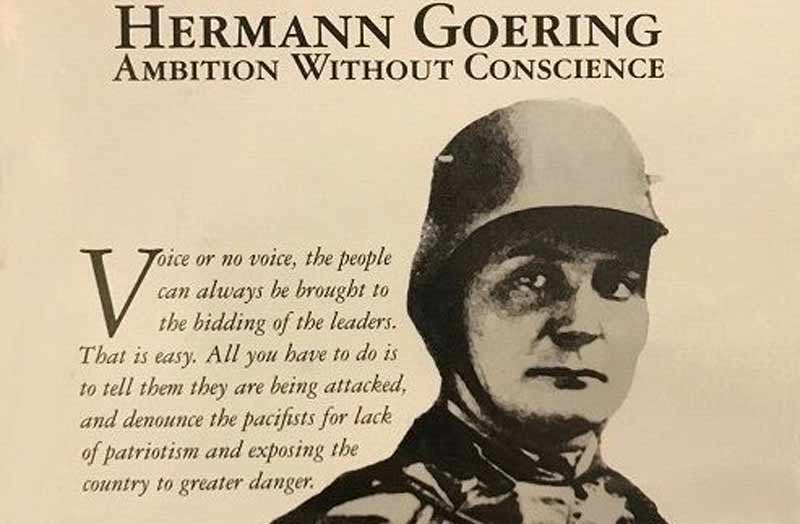Hermann Goering: Ambition Without Conscience – He was the “Number One Nazi,” one of Hitler’s oldest friends and second in command. Yet perhaps more than any other advisor, he was responsible for the collapse of the Nazi regime. Hermann Goering was a man of many contradictions; a decorated war hero whose strategic decisions proved disastrous, an elitist with a common touch, a man possessed of a brilliant mind unshackled by any conscience.
Through rare photos, film footage and interviews with experts, this documentary assembles a fascinating portrait of the man who embodied the Nazi regime. Discover how his World War I experiences prepared him for his role in the Third Reich and gave Hitler legitimacy from the outset. Then see how his pride and bombast led to the greatest defeat of the war, and follow his descent into addiction. When World War II ended, Goering was convicted of war crimes at the Nuremberg trials and sentenced to death.
Two hours before his scheduled hanging, he committed suicide, thus ending the life of one of the most misguided figures in modern times. Archival news footage and scholarly commentary tell of his rise to power and the abuse of it that led to his destruction.
Hermann Goering: Ambition Without Conscience
Hermann Wilhelm Göring was a German politician, military leader and convicted war criminal. He was one of the most powerful figures in the Nazi Party, which ruled Germany from 1933 to 1945.
A veteran World War I fighter pilot ace, Göring was a recipient of the Pour le Mérite (“The Blue Max”). He was the last commander of Jagdgeschwader 1 (Jasta 1), the fighter wing once led by Manfred von Richthofen. An early member of the Nazi Party, Göring was among those wounded in Adolf Hitler’s failed Beer Hall Putsch in 1923. While receiving treatment for his injuries, he developed an addiction to morphine which persisted until the last year of his life. After Hitler became Chancellor of Germany in 1933, Göring was named as minister without portfolio in the new government. One of his first acts as a cabinet minister was to oversee the creation of the Gestapo, which he ceded to Heinrich Himmler in 1934.
Following the establishment of the Nazi state, Göring amassed power and political capital to become the second most powerful man in Germany. He was appointed commander-in-chief of the Luftwaffe (air force), a position he held until the final days of the regime. Upon being named Plenipotentiary of the Four Year Plan in 1936, Göring was entrusted with the task of mobilizing all sectors of the economy for war, an assignment which brought numerous government agencies under his control. In September 1939, Hitler designated him as his successor and deputy in all his offices. After the Fall of France in 1940, he was bestowed the specially created rank of Reichsmarschall, which gave him seniority over all officers in Germany’s armed forces.




